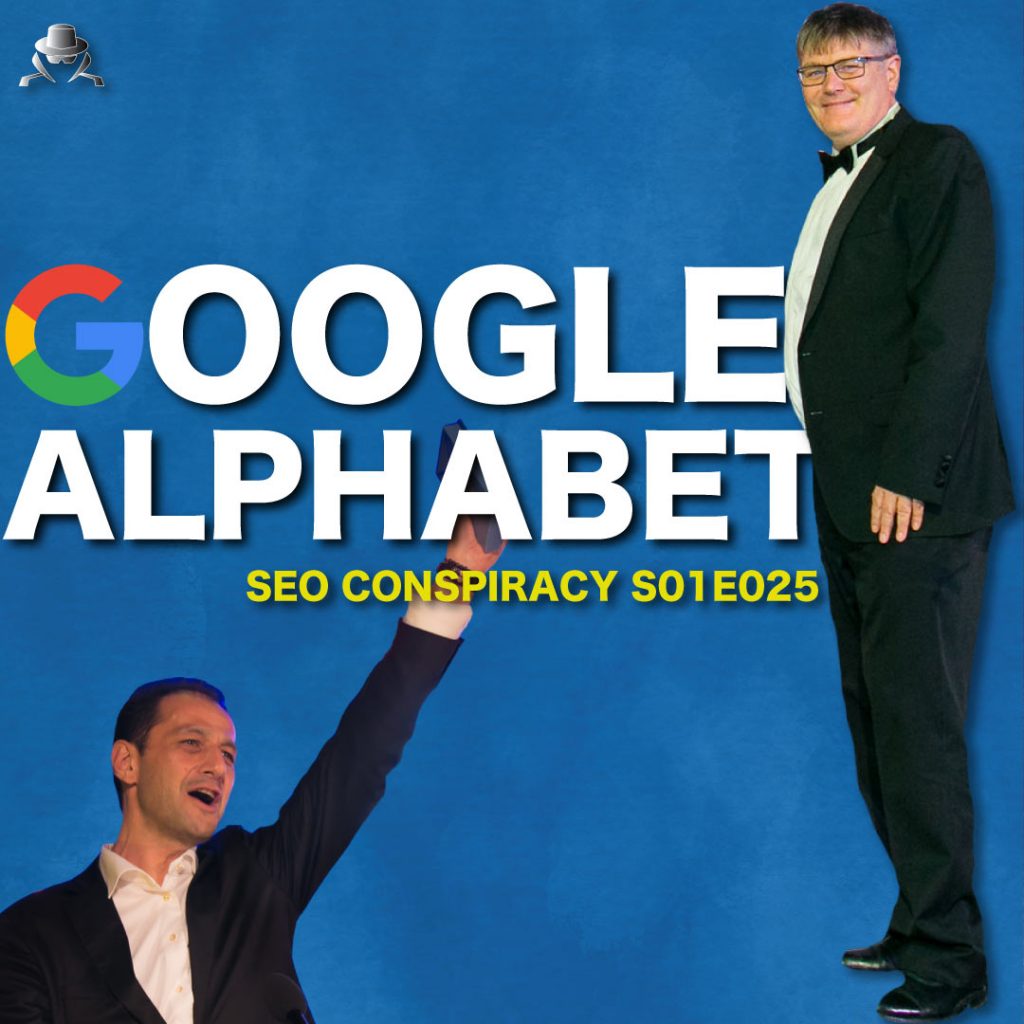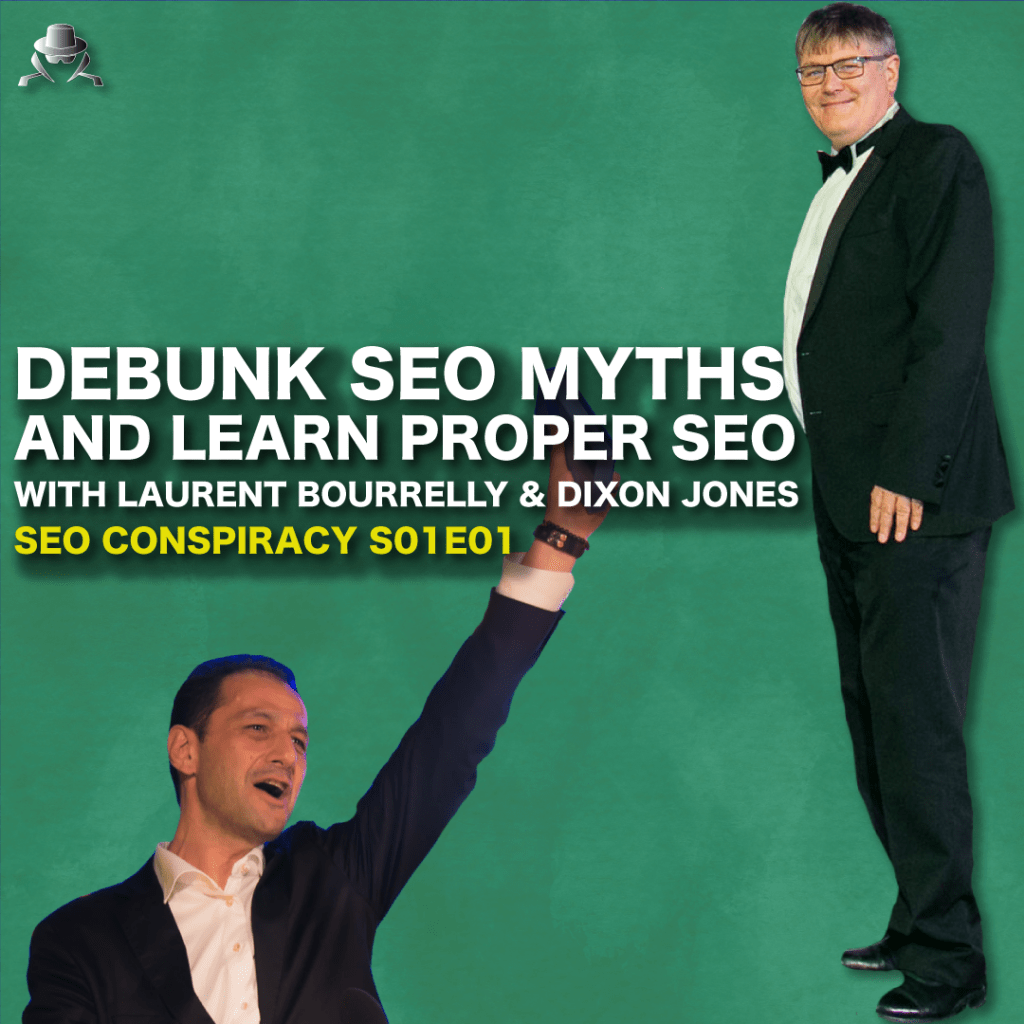We explore Google’s place, the search engine, inside the vision of the Alphabet Inc., the mothership company of all Google properties.
SEOCONSPIRACY S01E25
Is Google still a search engine? Is Google search still important to the overall Alphabet system?
Because, of course, Google is the search engine, but the overriding company is Alphabet.
For example, the big push by Alphabet recently was
the Cloud they were in to compete with Amazon, and they went there they are in the top three now as far as cloud services but and on
that front, they got the G suite is trying to in that space trying
to compete with Office in that space as well, so yeah, they try to eat into those areas. Still, there is a long, long way off those things counting when it comes to the revenues. I mean, looking at the quarterly reports, Google search is responsible for 66%, 2/3 of all of the gains of Google are still coming through those at those ads and the ads under search engine, not Adsense.
Adsense is recorded differently. The properties are different, so of course, the Search is still the quarter state; it’s a hole in Google’s foundation.
But there’s no doubt that it’s trying to use those profits and those revenues to invest in so many other ideas and concepts they run they’ve got their own the Google garage kind of thing where they’re trying to invest in new businesses. They’ll invest in all sorts of things to keep an eye on buying the good ones and run from the small ones or sue them or whatever but still, Search is when it comes to the money is the bulk of it. I think it will be for some time to go. They cost a lot of the revenue, so they’ve got twenty-two billion this quarter or twenty-four billion coming from Google search and four billion coming from YouTube ads, and then there are other things. Still, in a quarter, so you know, YouTube, the second biggest search engine on the planet.
When they put into a report the cost of displaying ads on mobile compared to the desktop, I remember when it is a lot more expensive to show ads. It’s like okay it’s a line. It’s not a small line the upscaling the costs of displaying ads on mobile with the rise of mobile it’s a problem for them as well and what we don’t see is as far as SEOs well first, let’s
focus on what Google are we talking about:
From a user perspective, Google is a search engine.
Is it a cloud service, is it a social network? I mean Google+ it’s also a myth; we’ll talk about it, what was Google+.
But there’s the search engine from a user’s perspective.
From Alphabet perspective, it’s a revenue string, right.
From the founders, perspective is just an unlimited wallet to play with big boy toys
At this stage, I would think that the founders pretty much I mean that you know, they’ve taken such a backseat now that yes, they have got this unlimited wallet. They play with toys.
I think they’re playing for our attention. If they can keep our attention anyway, then they’ll be happy with that because, of course, Gmail takes up a whole load of people’s time. You know they’re looking at Gmail a lot as well. I think if you’re spending time on Google properties, that’s a great thing for Google because that allows getting you back into their ecosystem. It’s the same for Office and Microsoft, and the same for you know, Amazon and Facebook; it’s all like fight for your attention really at the moment.
The game theory concept
Alphabet hired the most outstanding specialist in the world in game theory for the Adwords division.
Because it came to a point where you’re going to kill your margin if you up bid. And if you don’t up bid, you don’t make any more money, so Google’s interest is to manipulate you into up bidding, not stopping you from bidding. Still, you have to kill yourself because your margin will decrease to a point where you make some revenue.
This was when they came up with the three-way formula. It’s a combination of your bid price & your click-through rate, and your quality score or some you know. This quality score was made up of three or four different ideas.
What about mobile?
What about mobile? What about that black box?
Google Desktop is far from dead, but now if a website has less than 50 or 60 percent visits from the mobile, it’s not a standard website anymore.
I got markets in Asia where it’s mobile-only; there’s no desktop, it’s just mobile-first. Mobile-only.
The message here is more that you have to open up; you have to watch, observe what’s going on around you; I mean, from your customer, your website, the behaviors and my word of caution are to be careful when you focus on something called Google the search engine desktop version where the mothership doesn’t focus on it anymore you know it’s just the revenue string. Still, they invest in something when the vision from the top of the pyramid is somewhere else.
Google’s operating system
There’s Chrome; there’s Google Analytics. There are Chromebooks. There’s Android.
So they’ve got two operating systems, and that’s a vast number of people on there on the hardware
They also own a whole load of black fibers, but so they own a lot of the proper cabling as well; they bought cabling companies as well, so they hold a considerable amount of infrastructure around the internet, and they make losses on all of it at sea. All of it except for those ads. When you buy a Chromebook, they’re the cheapest, most powerful machines out there, so you’ve got to ask yourself why.
Why are they so cheap and powerful at the same time when an Apple or a Windows machine is priced entirely differently.
The answer is because they want to lock you into the Google experience you know so they can track you and effectively sell to you
but ultimately, all of those sales are being generated by us on the business side, paying Google more and more money, so they’ve said right the consumer doesn’t have to pay.
So they change the business model so that all of sudden more money goes in, and it looks like it’s all free. Still, the truth is that it’s not free. They’re slowly doing is ultimately reducing the innovation and the innovative companies’ ability to innovate because their money is getting sucked into the marketing machine.
On the other hand, we don’t have to spend two hundred thousand pounds on a TV, and these days, we had to do it before if we wanted to get attention.
Alphabet understood by looking at Apple that the power is in the hardware, and even Amazon understood that; if you got your hardware handle and the files because you’ve got all the different levels you’re all underneath, you got the developers for the apps and but the hardware is the black box because when you look at the Apple ecosystem whether you like it or not within the ecosystem it works very well, it’s well-integrated, it’s flawless and then it’s up to you to
say, “do I trust Apple with my stuff or not.”
What’s your opinion about all this? Let us know!
Listen to the podcast
Watch the video
Latest posts



